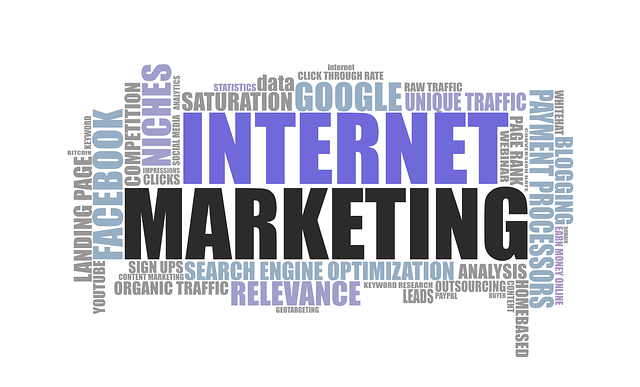RV repair businesses face challenges managing diverse workflows due to specialized work and varied vehicle types. Traditional methods are inefficient and error-prone. AI marketing automation automates repetitive tasks like scheduling, reminders, and inventory management, freeing up technicians for intricate repairs. This improves productivity, customer satisfaction, and turnaround times. AI solutions predict maintenance needs based on historical data, identify common repair issues across models, and integrate seamlessly with existing software. Implementing these solutions can significantly enhance operational efficiency, improve customer experience, reduce manual labor, and optimize inventory management.
In the dynamic world of recreational vehicle (RV) repairs, efficient workflow management is key to success. Traditional methods often struggle to keep up with the unique demands of this industry. However, AI marketing automation offers a transformative solution to streamline RV repair businesses. This article explores the challenges of RV repair workflows and presents powerful AI solutions for service management. We provide a comprehensive step-by-step guide on implementing AI automation to help RV businesses thrive in today’s digital landscape.
- Understanding the Challenges of RV Repair Workflows
- AI Solutions for Efficient Service Management
- Implementing AI Automation: A Step-by-Step Guide for RV Businesses
Understanding the Challenges of RV Repair Workflows

RV repair businesses face unique challenges when it comes to managing their workflows due to the specialized nature of the work and the diverse range of vehicles they service. From diagnosing complex mechanical issues in motorhomes to performing routine maintenance on travel trailers, efficient workflow management is key to meeting customer demands and ensuring timely repairs. The traditional manual approach can be cumbersome, time-consuming, and prone to errors, especially as these businesses deal with a high volume of jobs and varied equipment.
Here’s where AI marketing automation steps in as a powerful tool for streamlining these motorcycle service workflows. By implementing AI solutions, RV repair shops can automate repetitive tasks, such as scheduling appointments, sending reminders, and managing inventory levels, freeing up valuable time for technicians to focus on the intricate repairs and maintenance. This not only improves productivity but also enhances customer satisfaction by providing faster turnaround times and more efficient communication.
AI Solutions for Efficient Service Management

AI solutions offer RV repair businesses an efficient way to manage their services and streamline workflows, significantly enhancing overall operational effectiveness. These advanced systems can automate various tasks, from scheduling appointments to tracking inventory levels. By leveraging machine learning algorithms, AI tools can analyze historical data to predict maintenance needs, allowing for proactive service planning and reducing downtime for clients.
For instance, an AI-powered system can identify patterns in common repair issues across different RV models, enabling technicians to stay better prepared. This not only expedites the service process but also enhances customer satisfaction by providing prompt and knowledgeable support. Additionally, AI solutions integrate seamlessly with existing software systems, ensuring data consistency and facilitating effective communication between staff members and customers.
Implementing AI Automation: A Step-by-Step Guide for RV Businesses

Implementing AI automation can be a game-changer for RV repair businesses, offering efficient and effective solutions to streamline their motorcycle service workflows. Here’s a step-by-step guide to help you get started:
1. Assess Current Processes: Begin by thoroughly understanding your existing workflows and identifying pain points. This could include tasks like scheduling appointments, managing customer data, tracking inventory, or handling after-sales support. Recognize areas where manual intervention is frequent or time-consuming.
2. Choose the Right AI Tools: Select AI solutions tailored to RV service needs. This might involve using natural language processing (NLP) for automated customer communication, computer vision for diagnosing mechanical issues, or predictive analytics for inventory management and parts ordering. Ensure these tools integrate seamlessly with your existing systems.
3. Implement Automated Customer Service: Integrate chatbots or virtual assistants powered by AI to handle initial customer inquiries, schedule appointments, and provide basic troubleshooting guidance. This not only improves customer experience but also reduces the workload on your staff.
4. Optimize Inventory Management: Leverage AI solutions for automated inventory tracking, parts ordering, and predictive maintenance scheduling. These tools can analyze usage patterns, predict maintenance needs, and reorder parts before they run out, ensuring smooth operations and minimizing downtime.
5. Train Your Team: Educate your team on the new AI systems and their benefits. Provide adequate training to ensure they feel comfortable using these tools and understand how AI will augment their work rather than replace it.
6. Monitor and Refine: Continuously evaluate the performance of your AI systems, making adjustments as needed. Regularly collect feedback from staff and customers to fine-tune your automation processes for optimal efficiency and effectiveness.
AI marketing automation offers RV repair businesses an efficient, effective way to streamline their service workflows. By leveraging AI solutions, shops can simplify appointment scheduling, optimize part inventory management, and personalize customer communications. Following a structured implementation guide ensures a successful transition, allowing RV businesses to provide faster, more reliable service while enhancing the overall customer experience. With AI automation, the future of RV repair is here, promising increased productivity, cost savings, and improved satisfaction for both businesses and their clients.
